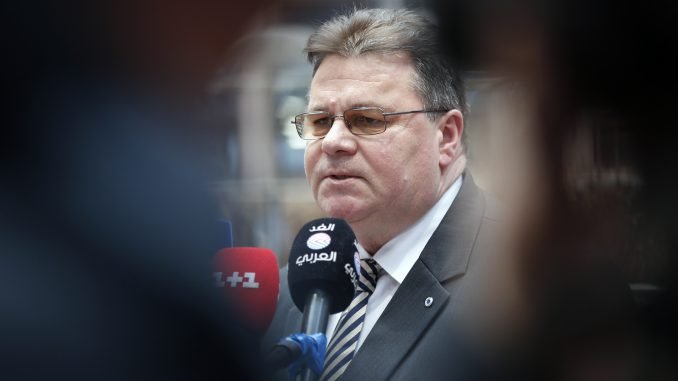
“The implementation was postponed for several days because we responded to the Ukrainians’ request as they wanted the other side to have fewer pretexts not to hold negotiations or to negotiate non-constructively if the summit takes place in Minsk on Wednesday,” the minister told BNS on Monday night.
Earlier in the day in Brussels, EU foreign ministers were originally due to formally endorse the expansion of the existing blacklist by including five Russian government and 14 separatists’ representatives who would be banned from entering the EU and would face asset freezing.
The expansion of the blacklist was agreed upon by EU ambassadors last week in response to the Mariupol attack that killed 30 people.
But French Foreign Minister Laurent Fabius unexpectedly announced that the implementation of new sanctions would be postponed until 16 February. The move was reasoned that a meeting is being planned in Belarus where the Ukrainian, Russian, French and German leaders are due to negotiate a truce in eastern Ukraine.
Linkevičius underlined that the EU’s latest decision did not mean that the EU sanctions were lifted, and they would be softened only if the real situation in eastern Ukraine, where government forces are fighting Russia-supported separatists, changed.
“It definitely does not change the essence as we decided to introduce the sanctions following the Mariupol events, because of those events. We will definitely not evaluate any agreements or signatures put on them as they do not make such impression they would under normal circumstances. We will evaluate only real changes in this situation if we see that the forces are being withdrawn and there’s a genuine attempt to implement what’s stipulated by the Minsk agreements. If that happens, only then will we have a reason to review our policy,” the Lithuanian foreign minister said.

Be the first to comment